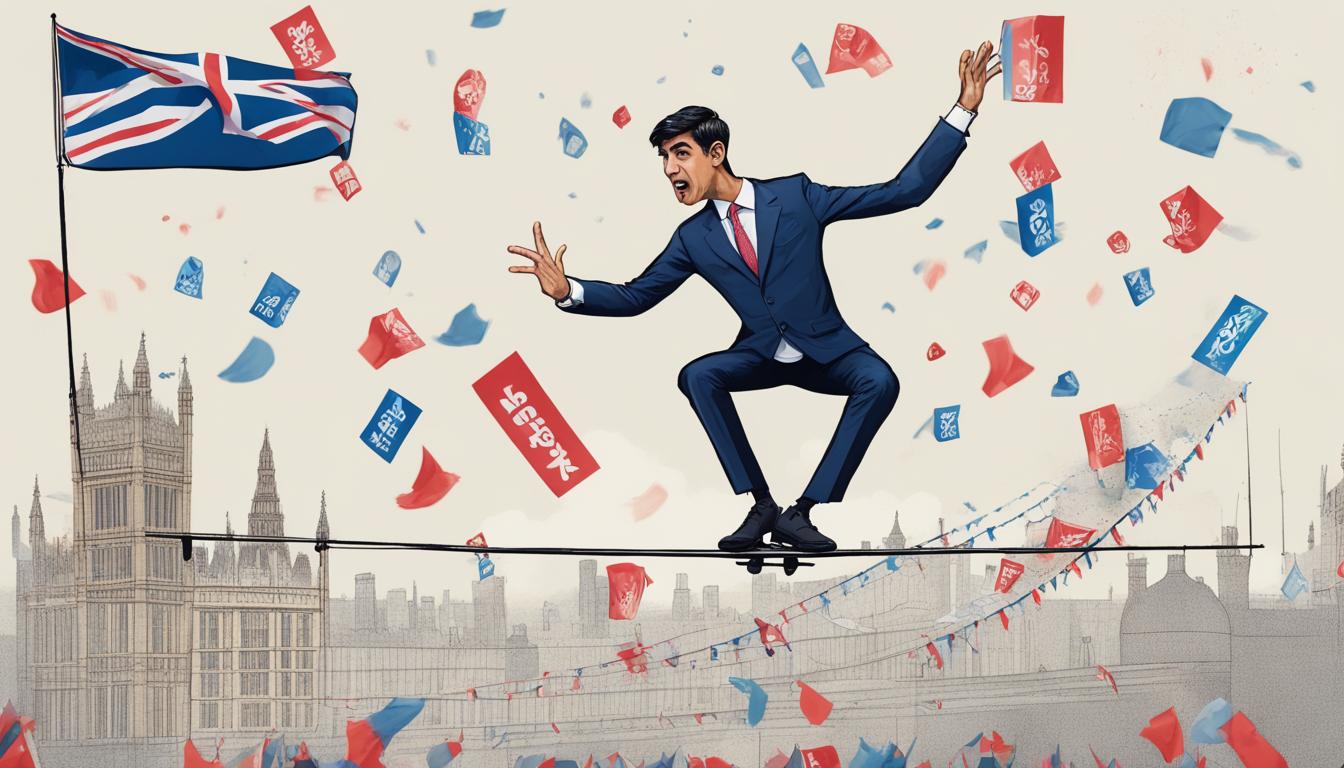UK Prime Minister Rishi Sunak is urged by his party’s right-wing faction to adopt more conservative policies following significant losses in local elections.
UK Prime Minister Rishi Sunak is facing intensified pressure from the right-wing faction of the Conservative Party following substantial losses in the recent local elections, where the Tories lost nearly 500 council seats and experienced defeats in the West Midlands mayoral race and in London. Amidst these setbacks, Conservative MPs and senior figures are urging Sunak to adopt more right-leaning policies to strengthen his leadership position.
In a notable meeting, Sunak was pressed by prominent right-wing MPs, Sir John Hayes and Sir Edward Leigh, to move the party further to the right. This pressure coincides with the Prime Minister’s recent endorsement of the Rwanda Bill, a measure aimed at deporting certain asylum seekers, which has been criticized by the Labour Party as evidence of Sunak’s capitulation to right-wing demands.
Additionally, there is growing internal conflict within the Conservative Party as they face the rising popularity of Nigel Farage’s Reform UK party, which is impacting the Tories’ voter base. This internal struggle is underscored by calls from figures like Suella Braverman for urgent strategical adjustments.
Meanwhile, Reform Party leader Richard Tice has dismissed rumours of a potential alliance between his party and former Prime Minister Boris Johnson, citing ideological differences, particularly concerning fiscal policies and environmental targets. Both Johnson and Farage have distanced themselves from speculation about any political realignment involving Farage rejoining the Tories.
Despite the electoral disappointments, Sunak shows little sign of shifting towards a more centrist stance, as advocated by some within his party. The Prime Minister remains aligned with traditional right-wing economic policies and Brexit-centric positions. With an upcoming election campaign, it appears Sunak may focus on anti-immigrant narratives and cultural debates, potentially signaling a shift towards more divisive strategies to counter threats from the right, including Reform UK.
In this context of political maneuvering and strategic recalibrations within the UK’s right-wing spectrum, the direction of the Conservative Party and the potential implications for the country’s political landscape remain focal points of attention.













